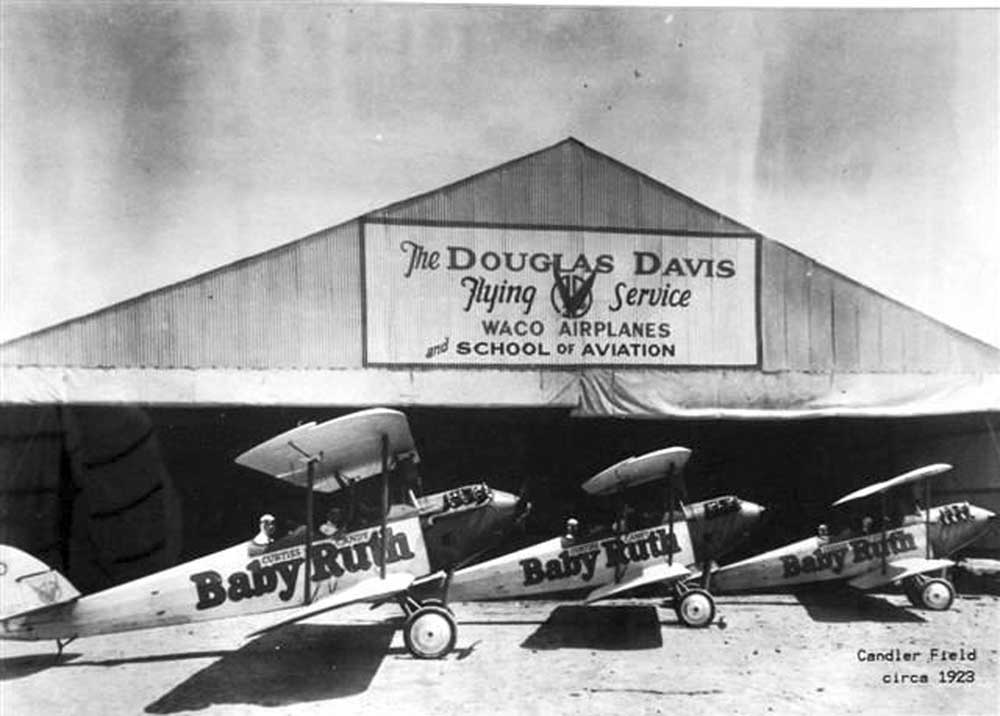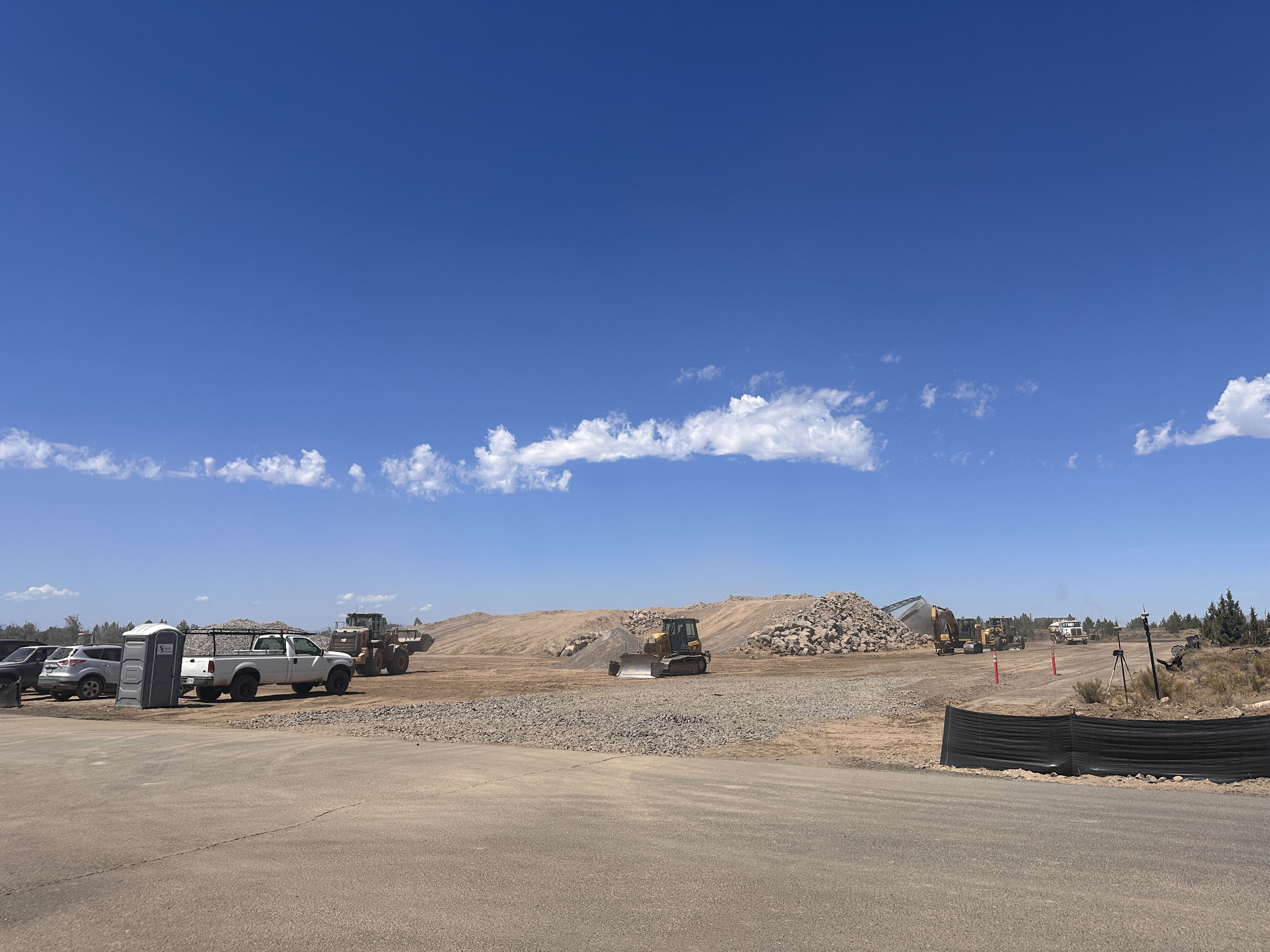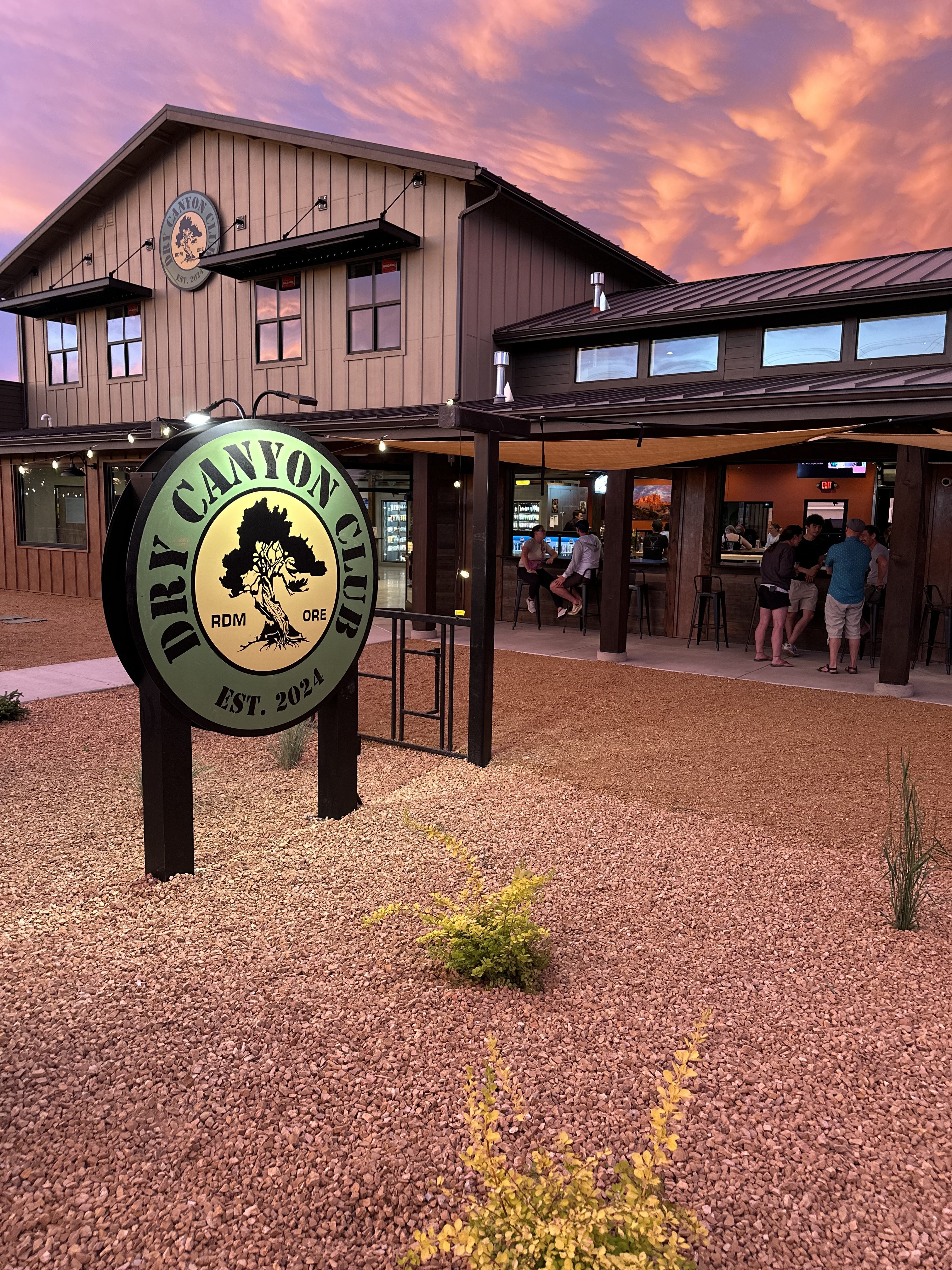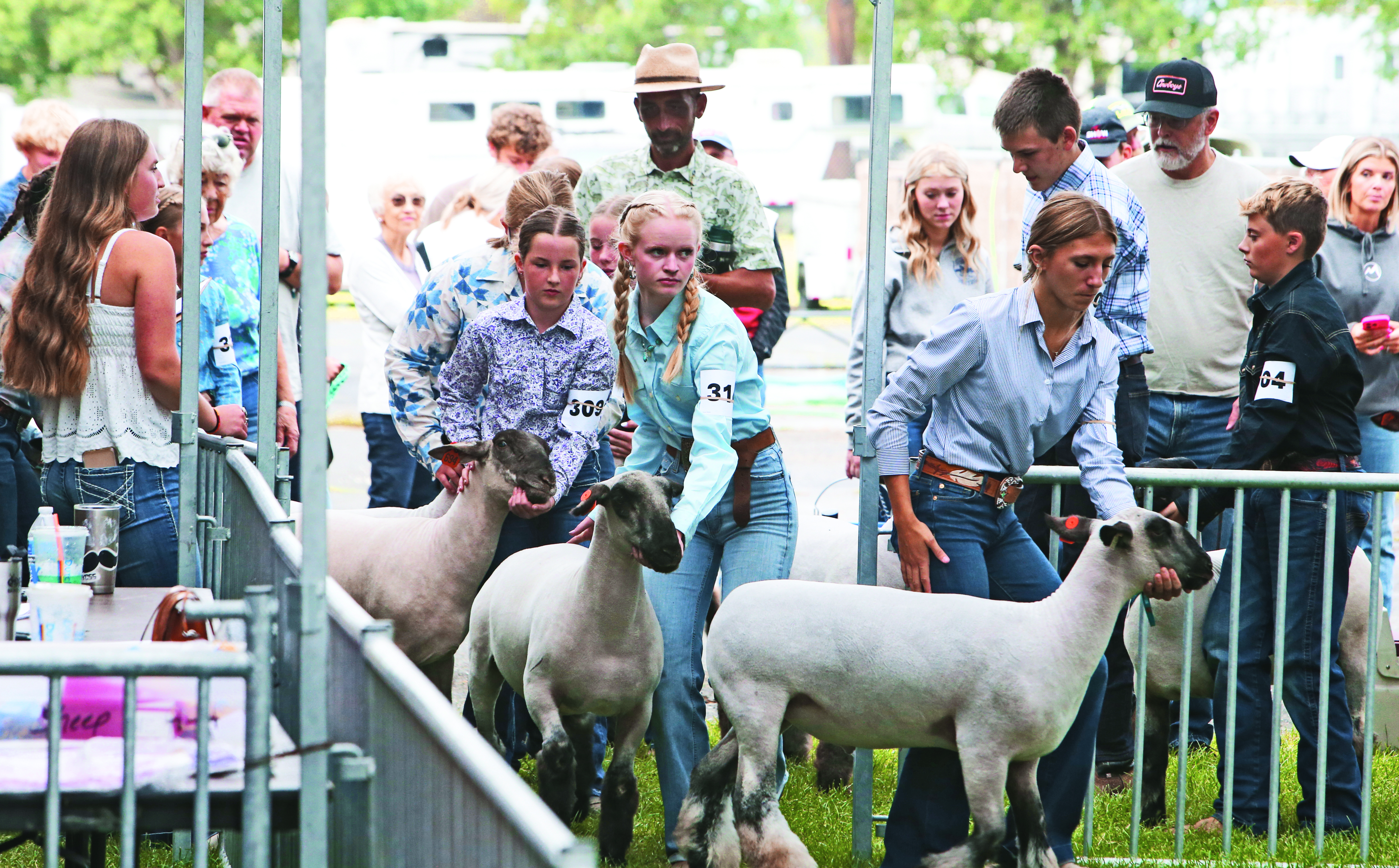Offbeat Oregon: Rural farmer helped save the life of Bend barnstormer
Published 4:00 am Thursday, July 18, 2024

- The Douglas Davis Flying Service fleet of OX-5 powered Waco 9s. This photo comes from the Web site of the National Waco Club.
Editor’s note: This is the second in a series. To read it in its entirety, visit redmondspokesman.com.
Trending
On a gusty late-summer evening in 1930, well after dark, a few feet off the ground near the Oregon-Nevada border, 22-year-old Ted Barber was hurtling through the blackness, preparing to die.
And when Ralph Grove heard the engine droning outside his home in rural Eastern Oregon, he knew exactly what that meant. It was the middle of the night, and some stormy weather was coming in. Nobody would be out flying on a night like this unless he was in serious trouble.
He lit a lantern and hurried out to the shed, in which he kept his automobile. He knew just the field that the pilot should land in.
Trending
Several dozen feet overhead, Barber was praying for gasoline, hardly daring to hope. He’d spotted a lighter patch of darkness that looked like a cultivated field, which would mean no big rocks to smash into. He was trying to keep in position so that if the engine quit, he could reach that field.
He watched Grove’s lantern moving from the house and disappearing — apparently into a shed. Then lights came on and he saw an automobile come out of the shed and drive onto the road.
Down below, Grove was hurrying down the road to the field in his car. He whipped it into position and let the light of its headlights spill out over the stubbly field, lighting up a row of willow trees at its extreme end. Overhead, Barber lined up on the field, grabbing for the lifeline, not sure even if he’d make it through the final turn without running out of gas. Then he was on the ground, bumping to a stop, shutting off his engine — safe.
“I never enjoyed a bed so much in my life as the one in the spare bedroom of that ranch house,” Ted recalls, in his memoir. “As I laid my head into the large fluffy pillow and spread out to get as much of my body as possible in contact with that soft but solidly earthbound mattress, I enjoyed a peaceful comfort that I had not known existed.”
Close to disaster
The next morning, Ted learned two things. First, the field he’d been lining up on when he saw Grove’s house was the Grove family’s vegetable garden. It was just 150 by 300 feet, fenced and — for good measure — cross-fenced. He would not have survived an attempt to land there.
And second, when he put his dipstick into the gas tank to see how much was left, the end that thumped the bottom of the tank, at the lowest corner, wasn’t even moist when he brought it back up. All the fuel left in the plane was just what was in the fuel lines — and the OX-5 engine burns nine gallons an hour. He’d landed with about 30 seconds’ worth of fuel left in the airplane.
Ted Barber’s crazy weekend of crash landings wasn’t quite over, though. The next day, while flying back to the Henry ranch, a piece broke off one of his propeller blades, causing the engine to start vibrating furiously. Ted cut the power. Luckily, he had enough altitude to glide to a reasonably uneventful dead-stick landing in one of the fields by the ranch. When he climbed out of the cockpit, he found the engine was hanging onto the airplane by just two badly frayed cables. It had broken everything else, and if he’d been two seconds slower chopping the throttle it would have probably torn itself out of the airplane. It is highly unlikely that Ted would have been able to control it if that happened, because with 400 pounds suddenly gone from the nose, it would behave like a badly made paper airplane. Ted Barber would have tumbled out of the sky like a falling leaf.
Five crash-landings, three of them seconds away from near-certain fatality. If Ted could have taken that string of luck to Vegas, he would have left a millionaire.
A flying legacy
Ted Barber went on to become a flight trainer during World War II, and later became a well-known “barnstorming mustanger” — using an airplane to round up feral horses on the range in Nevada. Despite dozens of close calls and crashes over the years — including, at one point, jumping out of his plane head-first while it was falling off a Nevada mountain — he was still around in 1987 to write his memoir.
“It is hard to understand why some people are allowed only one mistake (and are killed by it),” he wrote. “I don’t have fingers and toes enough to count the really tough spots I have survived.”
“The Barnstorming Mustanger,” a book by Ted Barber published in 1987 by Ted Barber Industries








